Rebuilding relationships damaged by addiction
Path to Recovery: Healing Broken Bonds
Understanding the Depth of Relationship Damage and Hope for Reconciliation
Addiction is often described as a family disease, one that impacts not only the individual but also the web of relationships around them. The emotional upheaval, mistrust, and betrayal wrought by substance abuse can lead to fractured bonds with romantic partners, family members, and friends. Rebuilding these relationships requires patience, effort, and strategic approaches rooted in honesty, communication, and mutual understanding. This article explores how addiction affects relationships, the steps toward reconciling damaged bonds, and the resources available to support recovery and relationship healing.
The Impact of Addiction on Personal Relationships
How can drug addiction affect relationships?
Drug addiction can deeply disrupt personal relationships, creating emotional and physical damage that lasts long after the initial substance use begins. It often leads to mistrust, betrayal, and emotional upheaval among loved ones.
Addiction impairs judgment and can fuel conflicts, causing partners, family members, or friends to feel hurt and confused. Financial difficulties are common, as addiction can be costly, sometimes leading to debt or financial instability within families.
Behavioral changes are also significant. Addicts might become withdrawn, aggressive, or manipulative, which makes effective communication difficult. Enabling behaviors, like supporting or covering up the addiction, may inadvertently support ongoing substance misuse.
These issues can result in broken bonds, estrangement, or even legal problems if criminal activity is involved. Children exposed to a parent’s addiction are at particular risk, facing neglect, emotional distress, or physical harm.
However, recovery of relationships is possible with effort and support. Participating in therapy, like Behavioral Couples Therapy, can help repair trust and improve communication. Setting clear boundaries, supporting treatment, and involving external resources for both individuals and families are crucial steps on the path to healing.
Common Challenges in Relationship Recovery
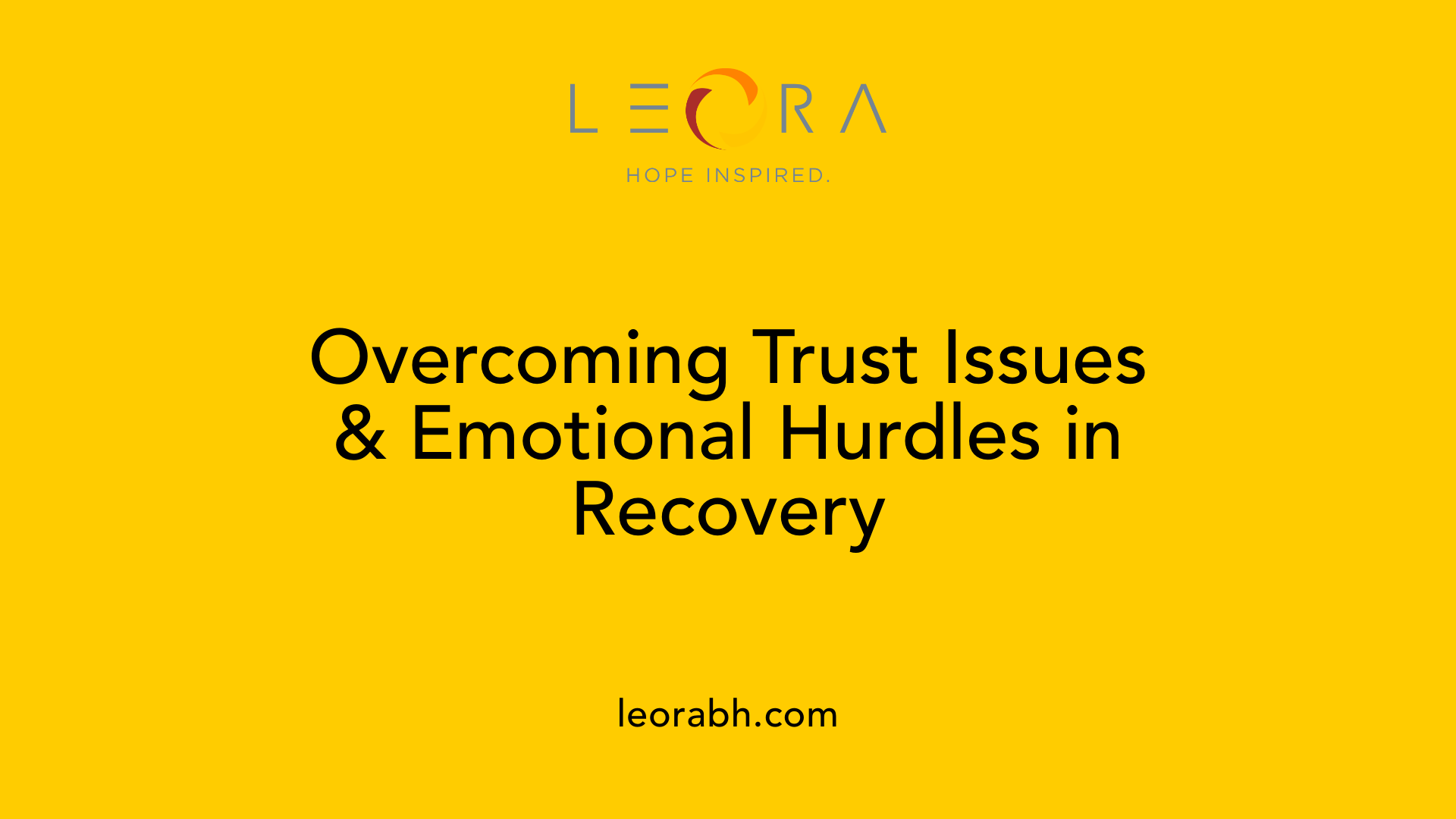
Can recovering addicts struggle with relationships?
Recovering addicts often face significant hurdles when it comes to rebuilding relationships. Addiction can cause emotional volatility, problematic communication patterns, and deep-seated trust issues that linger even after stopping substance use. Many individuals carry behavioral patterns such as dishonesty or manipulation from their addiction years, which can continue to impact their interactions.
Trust takes time to restore, and habits developed during addiction—like secrecy or impulsiveness—may hinder honest dialogue and emotional intimacy. Additionally, co-dependency might develop, leading loved ones to enable or caretaking behaviors that can complicate recovery. Mood swings and irritability, common during early sobriety, can also lead to conflicts and misunderstandings.
Involving partners, family members, or close friends in treatment—through family counseling or support groups—can help address underlying issues. Open, honest communication and consistent effort are essential for overcoming these challenges.
Long-term sobriety is not just about abstaining from substances but also about making behavioral changes that nurture trust and emotional stability. Building healthy relationships requires patience, accountability, and mutual respect, all of which support sustained recovery.
Steps Toward Healing and Reconciliation
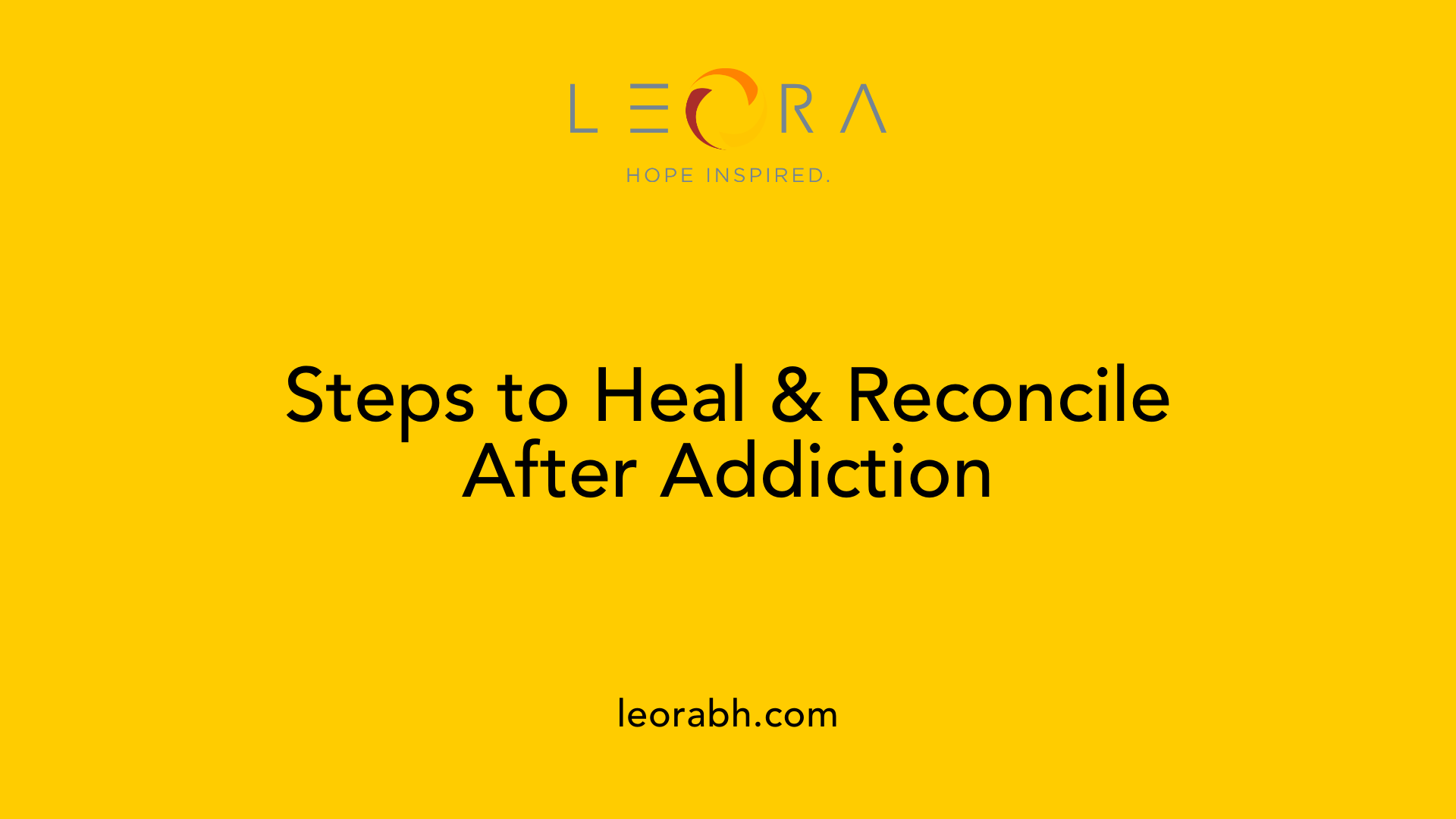
How do you repair relationships after addiction?
Repairing relationships after addiction involves creating a foundation of open and honest communication. This means sharing feelings, concerns, and challenges transparently and encouraging mutual honesty. It’s important for the recovering individual to acknowledge past mistakes, take responsibility, and demonstrate genuine efforts to change.
Building trust takes time, so patience is essential. Consistent actions that align with words—like following through on promises—are vital to regain confidence. Apologizing sincerely, making amends, and living in the present help rebuild emotional bonds.
Building honest communication
Open dialogue fosters understanding and emotional safety. Techniques such as active listening, using 'I' statements, and regular check-ins with loved ones can facilitate this process. Healthy communication also involves respecting boundaries and being transparent about recovery efforts.
Making amends and forgiveness
Making amends includes repairing emotional, financial, or other damages caused by substance use. It involves specific actions like repaying debts, offering sincere apologies, and following through on commitments. Forgiveness, both giving and receiving, often requires time and empathy. Sincere apologies and acknowledgment of specific wrongdoings show genuine remorse and open pathways to reconciliation.
Re-establishing emotional bonds gradually
Rebuilding trust and bonds is a slow process that may involve setbacks. Celebrate small milestones to boost motivation. Engaging in joint activities, attending therapy sessions, and maintaining consistent, dependable behavior help strengthen connections. Remember, some relationships may never fully heal, but focusing on those willing to rebuild can create a supportive environment for sustained recovery and renewed emotional intimacy.
The Role of Family and Support Systems
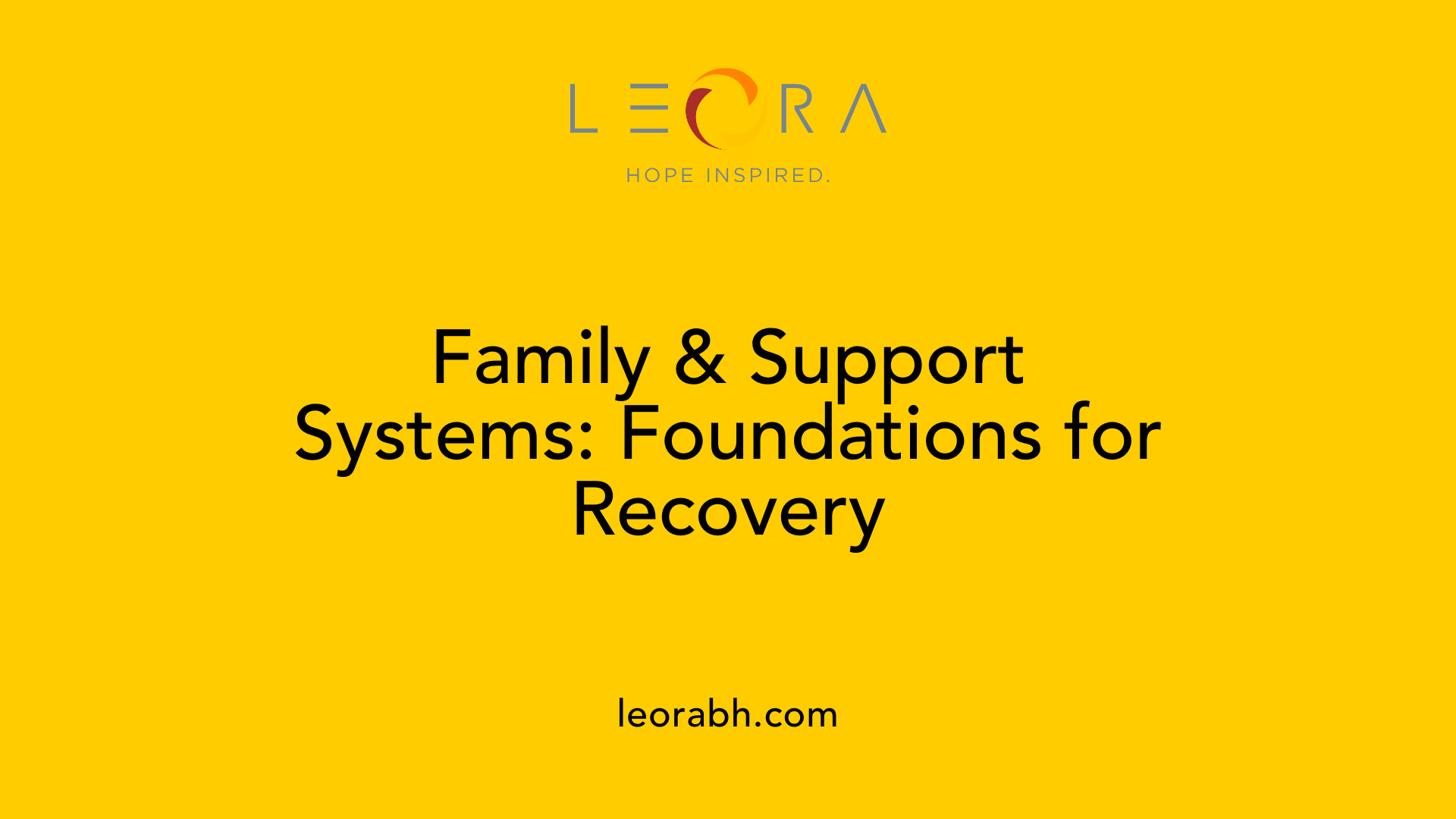 Recovery from addiction is a complex journey that involves not only individual effort but also the active participation of loved ones and support networks. Including family members in the recovery process is vital because they offer emotional support, understanding, and practical help that can significantly bolster an individual’s resilience.
Recovery from addiction is a complex journey that involves not only individual effort but also the active participation of loved ones and support networks. Including family members in the recovery process is vital because they offer emotional support, understanding, and practical help that can significantly bolster an individual’s resilience.
Family counseling and therapy options are effective tools that help repair damaged relationships, foster honest communication, and develop healthier boundaries. These therapeutic interventions provide a safe space for all parties to express feelings, address past hurts, and build trust. The involvement of professionals ensures that the family unit can navigate the challenges of recovery with guidance and support.
Support groups and community resources also play a critical role in sustaining long-term sobriety. Groups like Alcoholics Anonymous or family support groups offer shared experiences, accountability, and encouragement that can motivate individuals to stay committed to their recovery. Community programs provide educational resources, coping strategies, and social connections that reinforce a drug-free lifestyle.
Why is involving family and support systems in the recovery process so important?
Involving loved ones in recovery enhances emotional stability and accountability. Support systems help reduce feelings of loneliness, which can be a trigger for relapse. They also enable loved ones to understand the struggles and progress of the individual, fostering empathy and patience. Active family participation through counseling and regular communication creates a nurturing environment where recovery is supported on multiple levels.
Overall, a robust support system is essential not only for maintaining sobriety but also for healing relationships and building a healthier, more resilient life post-addiction.
More information can be found by searching for: Family support in addiction recovery.
Building Trust and Fostering Emotional Bonds
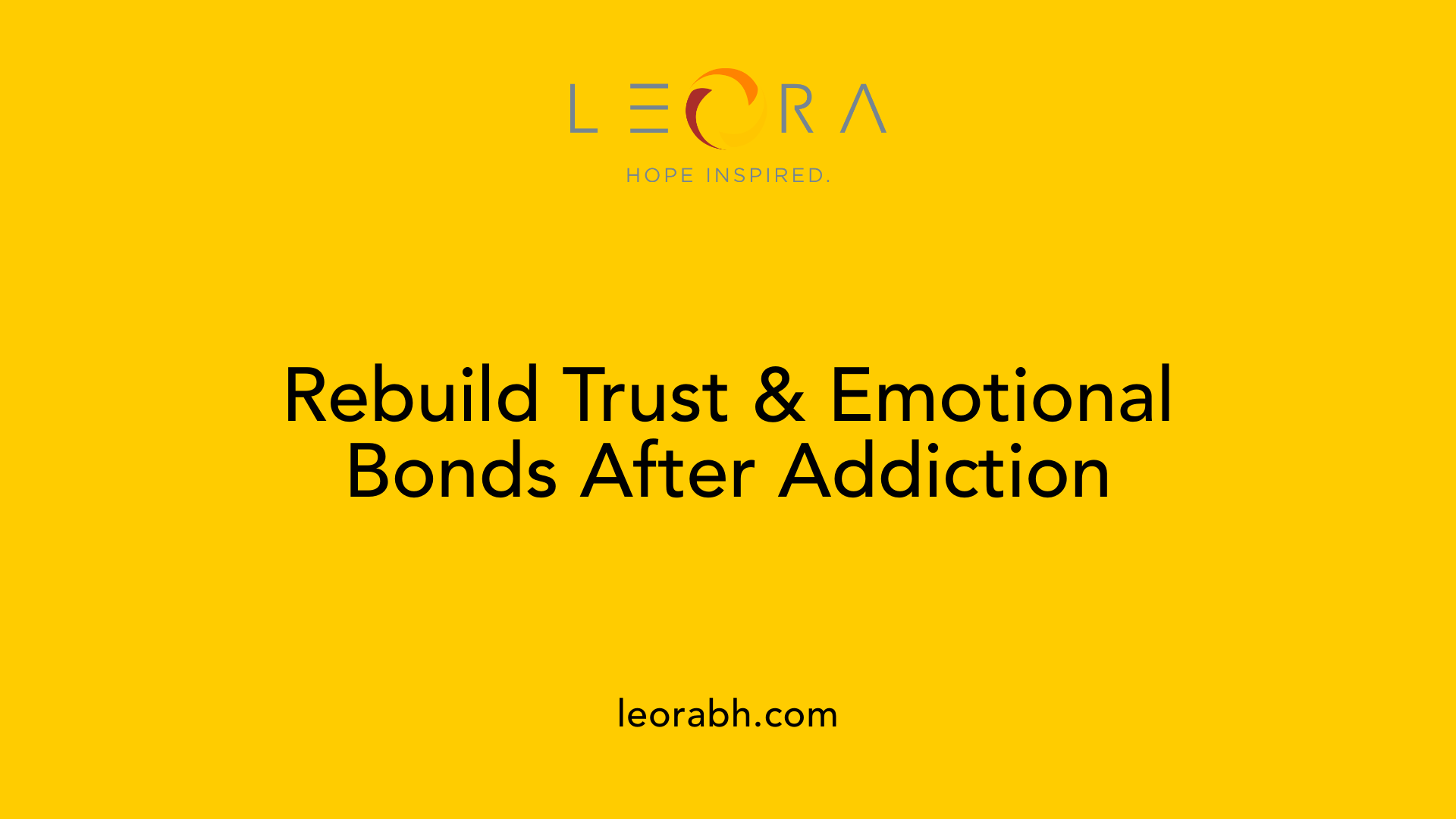 Rebuilding relationships after addiction hinges on several vital aspects, especially honesty, open communication, and forgiveness. These elements serve as the foundation for healing and strengthening emotional bonds. When individuals are truthful about their struggles and mistakes, it fosters an environment of trust and integrity. Clear and honest conversations help both parties understand each other's feelings, concerns, and expectations, paving the way for mutual empathy.
Rebuilding relationships after addiction hinges on several vital aspects, especially honesty, open communication, and forgiveness. These elements serve as the foundation for healing and strengthening emotional bonds. When individuals are truthful about their struggles and mistakes, it fosters an environment of trust and integrity. Clear and honest conversations help both parties understand each other's feelings, concerns, and expectations, paving the way for mutual empathy.
Forgiveness plays a crucial role in this process by allowing those hurt to let go of past resentment and anger. It creates space for emotional healing and signals a willingness to move forward without the burden of previous hurts. The act of forgiving doesn’t mean forgetting but rather releasing the negative weight that hinders progress.
Effective communication also enables sincere apologies and vulnerability, which are key to resolving conflicts and misunderstandings. Expressing feelings openly, listening actively, and validating each other's experiences reinforce emotional safety and trust. Over time, these practices build resilience and help relationships recover from the damage caused by addiction.
In summary, honesty, communication, and forgiveness are intertwined elements that nurture trust, foster understanding, and heal emotional wounds. Together, they support sustained relationship repair and establish a stronger, more resilient emotional connection.
Professional Resources and Therapeutic Interventions
Rebuilding relationships after addiction often requires professional help and targeted therapy to address complex emotional and behavioral issues. Several options are available to support individuals and families through the recovery process.
One highly effective approach is Behavioral Couples Therapy (BCT). This evidence-based therapy emphasizes improving communication, teaching problem-solving skills, and fostering a recovery-focused partnership between partners. BCT helps rebuild trust by creating a safe space for honest dialogue and mutual understanding.
Family therapy and individual counseling are also crucial. Family therapy aims to address collective issues, repair bonds, and help family members understand the impact of addiction. It guides everyone towards healthier ways of interacting and sets the foundation for ongoing support.
Individual counseling provides a private setting for the person in recovery to process underlying issues, trauma, and guilt that may hinder relationship repair. It also offers strategies for managing emotions, setting boundaries, and rebuilding confidence.
Support groups like Al-Anon, Nar-Anon, and SMART Recovery Family & Friends play a vital role by providing shared experiences, mutual encouragement, and accountability. These groups help loved ones cope with their feelings and learn healthier ways to support the recovery journey.
For more tailored assistance, the Substance Abuse and Mental Health Services Administration (SAMHSA) offers a free, confidential helpline—the SAMHSA’s National Helpline. This service provides referrals to local treatment facilities, community organizations, and support groups.
Engaging in therapy and support groups, combined with consistent boundary-setting and ongoing commitment, can significantly improve the chances of restoring trust and rebuilding relationships impacted by addiction. These resources offer not only emotional support but also practical tools to navigate the complex path of recovery.
Identifying and Overcoming Toxic Relationship Patterns
What are the signs of toxic or damaged relationship patterns caused by addiction?
Addiction can lead to clearly harmful relationship dynamics that affect both the individual and their loved ones. Signs of toxic or damaged relationship patterns include frequent conflicts, manipulation, and exertion of control. Emotional or physical abuse may occur, creating an environment of fear and instability.
People caught in these relationships often show dependency and low self-esteem. They may feel trapped, emotionally drained, and exhausted, often using substances as a way to cope with these stresses. Guilt-tripping, gaslighting, and jealousy are common, eroding trust and deepening emotional pain.
Within such toxic relationships, trust diminishes, leading to anxiety, depression, and feelings of worthlessness. Substance use might be normalized or even enabled, making recovery efforts more difficult. These destructive patterns not only hinder personal growth but also prevent meaningful healing and emotional recovery.
Understanding these warning signs is vital for recognizing toxic relationships early and taking steps toward healthier boundaries and behaviors.
Supporting Long-Term Recovery and Resilience
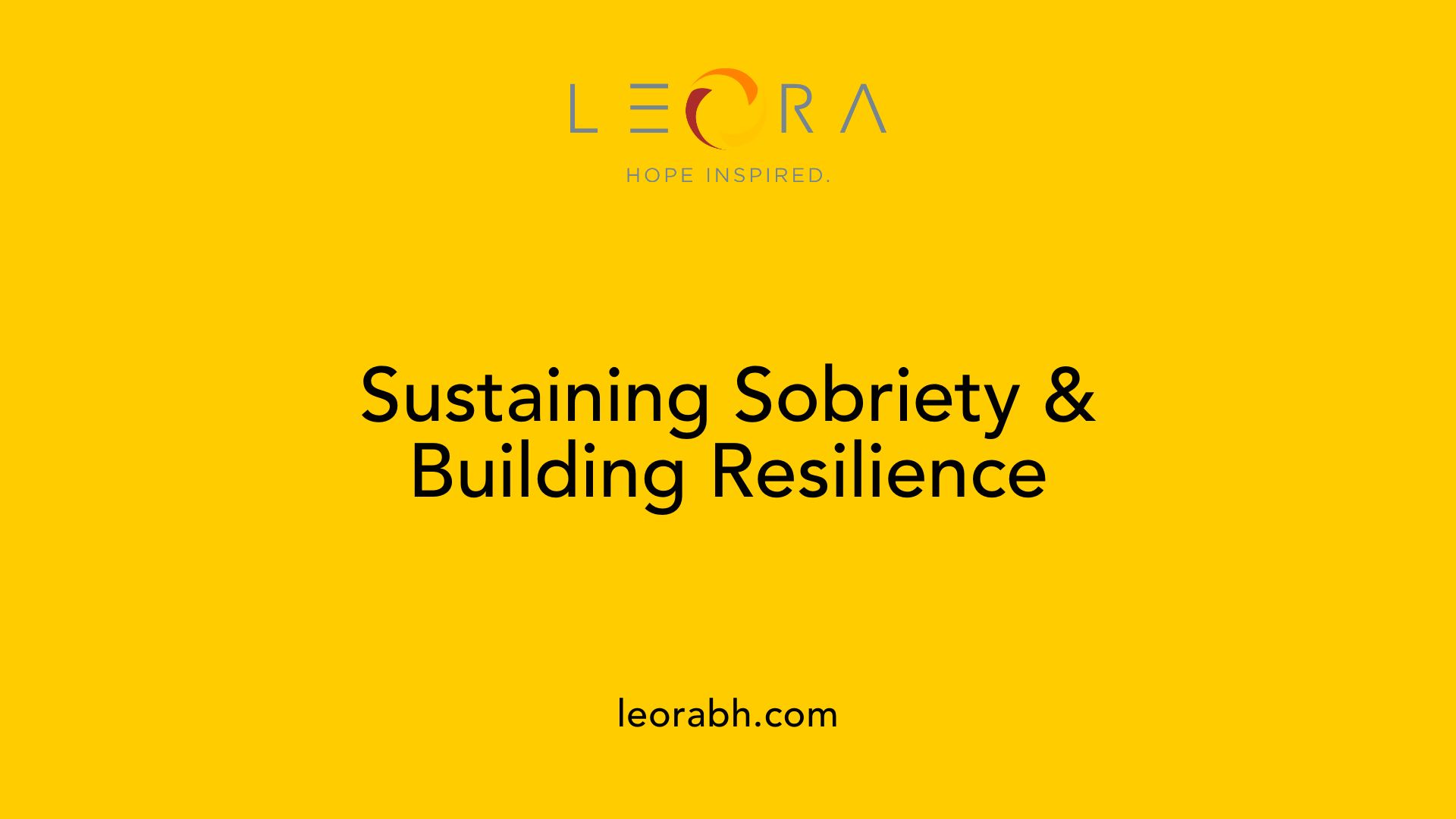
How can individuals maintain sobriety over the long term?
Maintaining sobriety requires ongoing effort and commitment. It involves establishing healthy routines, avoiding triggers, and developing new, positive habits. Participating in support groups like Alcoholics Anonymous (AA) or Narcotics Anonymous (NA) provides accountability and community. Continued therapy, whether individual, family, or group-based, helps address emotional challenges and reinforce recovery strategies.
Another crucial aspect is setting clear boundaries, both in personal relationships and within oneself, to safeguard sobriety. Regular self-assessment, journaling, and practicing mindfulness can help individuals stay aware of their progress and setbacks.
How to celebrate milestones during recovery?
Recognizing and celebrating milestones, such as a month or year of sobriety, can bolster motivation and reinforce the sense of achievement. Celebrations should be meaningful and healthy, emphasizing personal growth rather than material rewards. Sharing progress with trusted loved ones and acknowledging the effort involved fosters confidence and encourages continued commitment.
Family celebrations, sobriety anniversaries, or personal reflections help create positive reinforcement and strengthen bonds.
Why is continuing therapy and community involvement important?
Ongoing therapy helps individuals develop resilience against relapse and manage emotional or psychological challenges associated with recovery. Support groups offer shared experiences, advice, and validation, creating a sense of belonging. Participating regularly in community activities or volunteering can also provide purpose and distraction from old habits.
Community involvement enhances self-esteem and creates a network of support, which is vital for long-term success. Engaging actively with recovery resources helps sustain motivation and accountability, making resilience an achievable goal.
Are there resources and guidance available for individuals and families affected by addiction-related relationship issues?
Yes, resources and guidance are readily available for individuals and families navigating relationship challenges caused by addiction. Organizations such as the Substance Abuse and Mental Health Services Administration (SAMHSA) offer comprehensive support options, including family therapy, educational materials, and local support groups like Al-Anon and Nar-Anon. The SAMHSA National Helpline provides confidential, 24/7 referrals to treatment facilities, support groups, and community services.
Online resources, downloadable guides, and mutual support programs are also accessible to help families understand addiction’s impact, improve communication, and foster healing. Overall, a wide array of support options exists to aid families in supporting recovery and rebuilding trust.
Moving Forward with Compassion and Confidence
Rebuilding relationships damaged by addiction is a complex but achievable process that demands dedication, honesty, and an understanding of the deep emotional wounds inflicted by substance abuse. Success hinges on maintaining open lines of communication, establishing boundaries, seeking professional help, and fostering a forgiving, supportive environment. With patience and persistent effort, individuals and their loved ones can rediscover trust, rebuild emotional bonds, and emerge stronger. Remember, recovery is a journey shared—both in healing oneself and in restoring the vital connections that sustain us.
References
- Repairing Relationships Broken by Addiction
- Rebuilding relationships damaged by alcohol
- Guide to Repairing Relationships in Recovery - Northpoint Lincoln
- Repairing Relationships After Substance Use Disorder - Psych Central
- Importance of Relationships in Recovery: Repairing Relationships
- How to Rebuild Relationships in Recovery | Addiction Treatment
- Healing Relationships Damaged by Addiction: Rebuilding Trust
- The Effects of Substance Abuse on Relationships
Find Your Inner Light
Related Articles
Schedule an Assessment
Leora Behavioral Health provides comprehensive treatment services, including ambulatory detox, mental health IOP, and SUD IOP, to support your journey toward lasting recovery.
Our caring team will guide you through the admissions process and create a personalized treatment plan tailored to your unique needs. We welcome walk-ins. If you or a loved one is struggling, reach out today. We’re here to help.


.svg)




.svg)
.svg)
.svg)
.svg)
